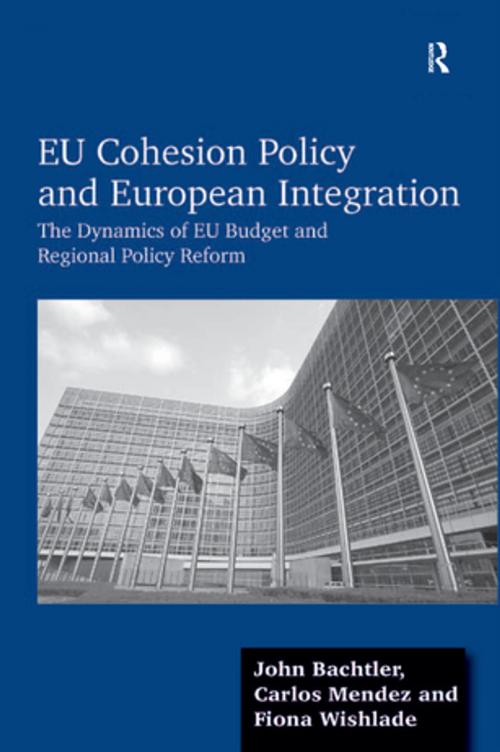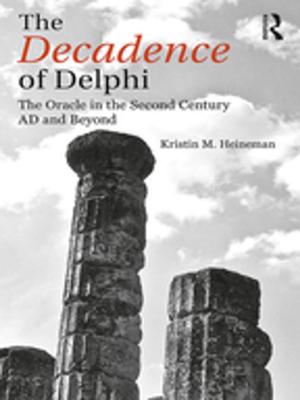EU Cohesion Policy and European Integration
The Dynamics of EU Budget and Regional Policy Reform
Nonfiction, Social & Cultural Studies, Political Science, Politics, Economic Conditions, International| Author: | John Bachtler, Carlos Mendez | ISBN: | 9781317140436 |
| Publisher: | Taylor and Francis | Publication: | April 22, 2016 |
| Imprint: | Routledge | Language: | English |
| Author: | John Bachtler, Carlos Mendez |
| ISBN: | 9781317140436 |
| Publisher: | Taylor and Francis |
| Publication: | April 22, 2016 |
| Imprint: | Routledge |
| Language: | English |
EU Cohesion policy accounts for a major share of the EU budget and is central to economic and social development in many European countries. This book provides a comprehensive and theoretically-informed analysis of how Cohesion policy has evolved over time, in particular the budgetary and policy dynamics of the 2007-13 reform. In the context of the budgetary politics of the EU, the book examines the process by which the reform of Cohesion policy has been shaped; it identifies the key factors that explain the allocation of funding, assesses the roles of the Member States, European Commission and European Parliament, and tests whether the process and outcome are consistent with the expectations of EU decision-making and integration theories. Based on extensive, EU-wide research over a ten-year period, the book provides new insights into both the process and outcomes of EU policy reform. Presenting original research in an accessible format, this book will be of interest to scholars as well as undergraduate and postgraduate students in the fields of European integration and policy studies.
EU Cohesion policy accounts for a major share of the EU budget and is central to economic and social development in many European countries. This book provides a comprehensive and theoretically-informed analysis of how Cohesion policy has evolved over time, in particular the budgetary and policy dynamics of the 2007-13 reform. In the context of the budgetary politics of the EU, the book examines the process by which the reform of Cohesion policy has been shaped; it identifies the key factors that explain the allocation of funding, assesses the roles of the Member States, European Commission and European Parliament, and tests whether the process and outcome are consistent with the expectations of EU decision-making and integration theories. Based on extensive, EU-wide research over a ten-year period, the book provides new insights into both the process and outcomes of EU policy reform. Presenting original research in an accessible format, this book will be of interest to scholars as well as undergraduate and postgraduate students in the fields of European integration and policy studies.















